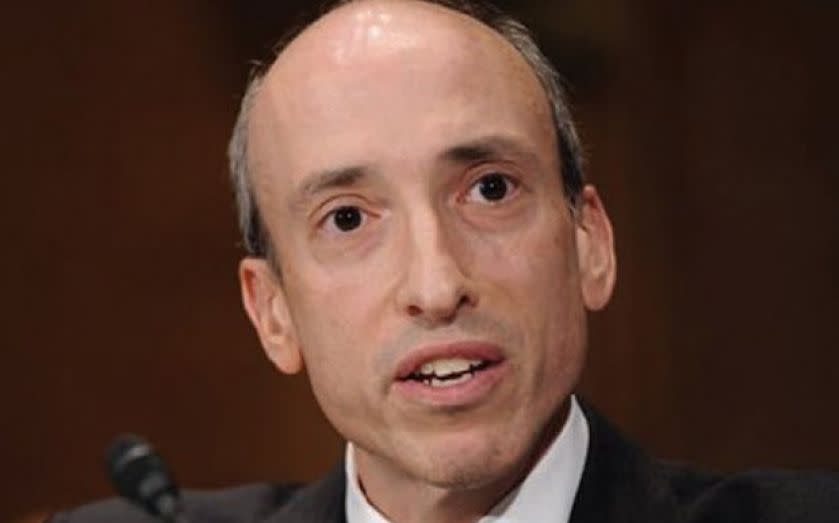SEC chief tells UK to set a firm deadline for T+1 trading settlement transition

The head of the US Securities and Exchange Commission (SEC) has told the UK to set a firm deadline on when it will transition to a new share-trading settlement regime.
Last month the US moved to a one-day settlement system for trades, known as T+1, meaning that all information will need to be checked and cash handed over within one working day of a trade being made.
The UK and the EU, however, currently work to a two-day timeframe, known as T+2, with both jurisdictions currently weighing up a move to follow the US.
A March report by a government taskforce said the UK should make the transition no later than 2027.
However, while the UK is set to publish a roadmap on the switch to T+1 by the end of the year, two camps have emerged on when that change should take place; one advocating a move that aligns with Europe, while the other arguing the UK should move as soon as it can to be in step with the US.
Speaking at a conference yesterday, Gary Gensler, head of the SEC, said the UK should “just set a day and stick with it”.
“No doubt, there will be some market participants who raise concerns with meeting whatever date you select,” Gensler said. “We benefited, though, from having an announced implementation date as well as a well-thought-out timeline and schedule.”
While some were nervous about the potential ramifications of the US transition to T+1, the process has gone relatively smoothly.
Gensler said that shortening the trading cycle was crucial to improving markets.
“Time is money. Time is risk,” he said. “Thus, shortening the market plumbing of clearance and settlement saves money.”
“It lowers risk. It increases efficiency, boosts liquidity and promotes resiliency of the markets,” he said.

 Yahoo Finance
Yahoo Finance 